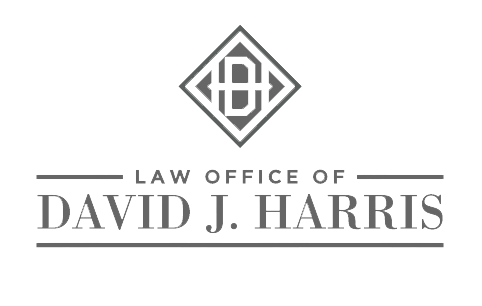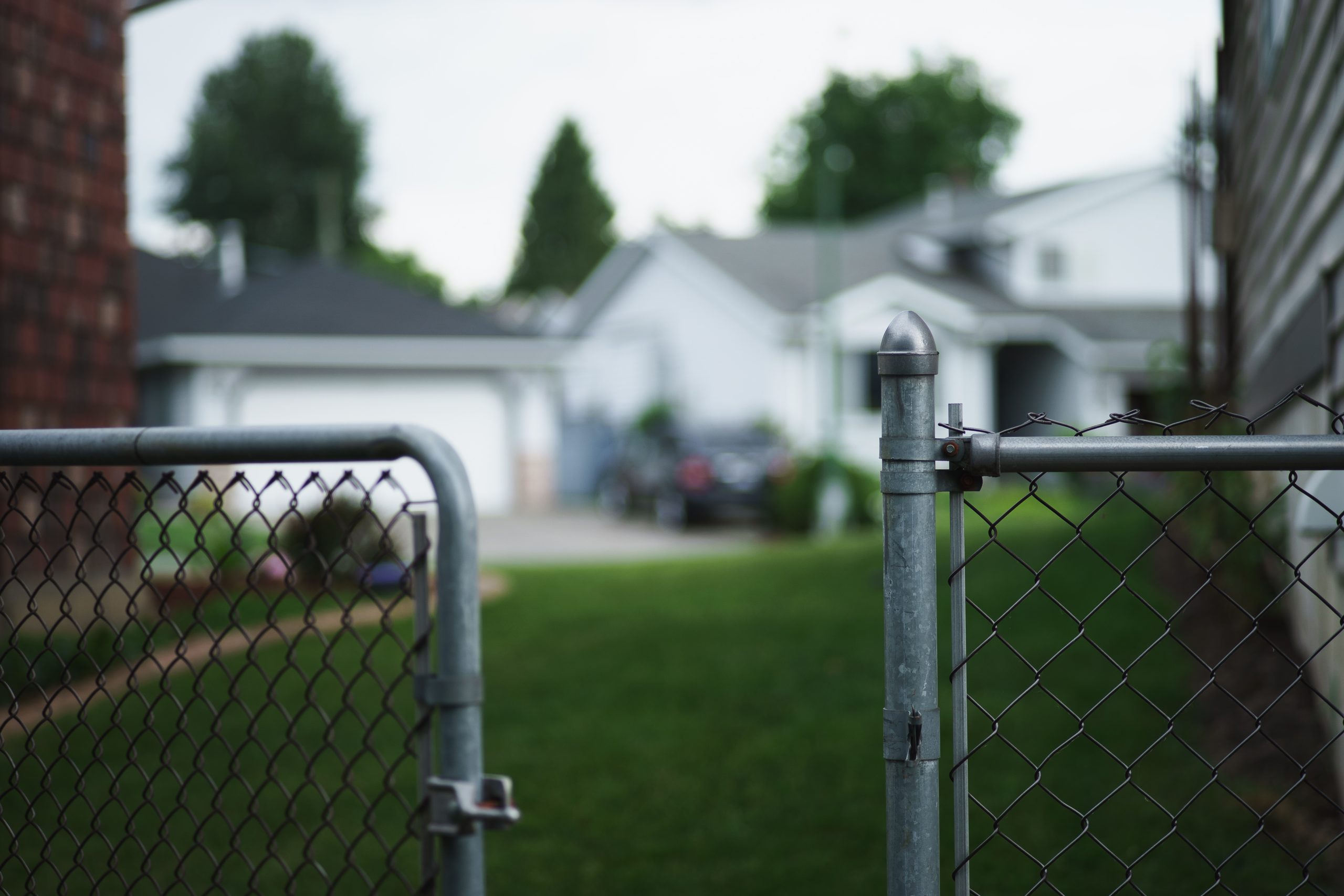How Much Debt Is Needed To File A Bankruptcy Case
I am often asked this question.
In the past, I asserted to bankruptcy clients who asked this question that the answer was an objective one.
I would explain, by example, that a physician or business person might be in a position to handle credit card debts of $40,000.00 and need not have to file a bankruptcy case, because his or her income potential would be enough to handle that amount of debt. I would compare this situation to an elderly person with $5,000.00 of credit cards debt with limited earnings potential and who was frail and unable to handle telephone calls from collection agents. I would explain that the elder person may likely be a more suitable candidate for a bankruptcy filing.
Now, I have reformulated my response as a subjective one.
In considering whether to file a bankruptcy case, I ask my clients to visualize what effect a bankruptcy filing will have on their lifestyle and their family if they could discharge their debts. I inquire whether they can get by day-to-day without a bankruptcy filing or whether a bankruptcy filing will allow them and their family to be free from the shackles of debt to get back on track and have a normal lifestyle.
The answer of how much debt is needed for a bankruptcy filing only begins with this examination. The proper answer evolves in a discussion that I have with clients at an initial meeting that usually lasts one or two hours without any type of commitment or obligation. After our discussion concludes, my client and I can make a joint decision that is the best for his or her unique situation.
If you are contemplating a bankruptcy filing, please call me and I will be happy to schedule you for a free consultation to discuss whether a bankruptcy filing is appropriate for you or or whether there are other alternatives,
What is Bankruptcy Discharge?
Obtaining a Bankruptcy Court order granting a discharge of your debts is one of the primary goals in a bankruptcy case.
A debt that is discharged is no longer legally enforceable by anyone against you.
Most unsecured debts can be discharged in a bankruptcy case with the exception of:
1. Employment taxes
2. Income taxes that are less than 3 years old or those that have not been assessed within 240 prior to the bankruptcy filing or or those where a return was not filed within 2 years of the bankruptcy filing or where the tax return was fraudulent
3. Child support or alimony
4. Student loans where there is no undue hardship
5. Court fines and criminal restitution
6. Personal injury awards resulting from driving drunk or under the influence of drugs
7. Intentional injuries or actions
8. Debts incurred by false pretense or fraud
The discharge order of the Bankruptcy Court only applies to debts that arose before the date that you filed for bankruptcy. There are also limits on how many time you can obtain a discharge in a given period of time.
While a secured debt such as a car loan or mortgage loan can be discharged, if you wish to keep the property securing the debt, you must continue to pay the debt; otherwise the creditor can repossess the asset (in the case of a vehicle) or foreclose upon the mortgage (in the case of real estate).
If you have further questions, please call me at my Wilkes-Barre, Pennsylvania office at (570) 823-9400 or send an e-mail to me at dh@lawofficeofdavidharris.com to obtain free information.
Will A Bankruptcy Filing Or My Spouse’s Bankruptcy Filing Affect My Rights in a Divorce Proceeding
In the American Bar Association manual, “The Family Lawyer’s Guide to Bankruptcy,” Shayna and Bruce Rosenfeld state that one quarter of all bankruptcy filings are caused by divorce.
I believe that the converse is true as well: financial strains that lead to bankruptcy cause divorce.
Typically, the spouse who files bankruptcy is the one obligated to pay alimony, child support and make the hold harmless payments.
A bankruptcy filing, however, may be of benefit to both divorcing spouses, as the debtor-spouse can discharge non-marital debts and free up money to pay the divorce-related debt owed to the other spouse.
At one time, bankruptcy was an effective weapon to thwart or impede a divorce or undo the result obtained after a settled or contested divorce. However, on October 17, 2005, Congress enacted the Bankruptcy Abuse Prevention and Consumer Protection Act of 2005 (“BAPCPA”) that dramatically changed the ability of a bankruptcy case to do so.
A debtor’s ex-spouse is a great beneficiary of this legislation, as Congress has made it substantially more difficult for a debtor to escape divorce-related obligations, as debtors generally may now thwart or impede a divorce-related obligation only if the obligation is considered to be a property settlement (rather than alimony, maintenance or support) and if the debtor is able to successfully navigate his or her way to a Chapter 13 discharge via three to five years’ worth of plan payments to a Chapter 13 trustee.
There are other creative uses of BAPCPA to deal with family law obligations. Therefore, a divorcing spouse or a soon-to-be divorcing spouse should seek counsel from a seasoned bankruptcy attorney to discuss the pro’s and con’s of filing for bankruptcy protection and to discuss the pro’s and con’s to defending actions taken by a spouse who has filed for bankruptcy protection.
Please call me to discuss your situation at (570) 823-9400 or send an e-mail to me at dh@lawofficeofdavidharris.com. You may also write to me at 69 Public Square, Suite 700, Wilkes-Barre, PA 18701.
Can I Discharge My Student Loans By Filing a Bankruptcy Case?
You can discharge your student loans by filing for bankruptcy if you can establish that paying back the student loans will create an undue hardship to you and your dependents.
In plain English, a discharge of a debt means that the debt is no longer legally enforceable. However, some debts are not dischargeable in a bankruptcy filing. A student loan debt, for example, is not dischargeable unless, not allowing the discharge will create an undue hardship to you and your dependents.
Undue hardship is more that just a basic hardship. The case law that controls Pennsylvania residents and the residents of a majority of states holds that “undue” hardship exists if all of the following three elements are satisfied:
(1) the debtor cannot maintain, based on current income and expenses, a “minimal” standard of living for himself or herself and his or her dependents if forced to repay his or her student loans;
(2) additional circumstances exist indicating that this state of affairs is likely to persist for the significant portion of the repayment period for the student loans; and
(3) the debtor has made good faith efforts to repay the loans.
These factors require a detailed examination and they have had varying interpretations by the courts. Don’t assume, however, that you do not qualify for a student loan discharge. I was able to obtain a discharge for a client of a student loan in excess of $300,000.00 as a result of a case decided by now United States Supreme Court Justice Samuel Alito before whom I appeared.
Aside from a bankruptcy filing, you may have other options for dealing with your student loans.
Please call me to discuss your situation at (570) 823-9400 or send an e-mail to me at dh@lawofficeofdavidharris.com. You may also write to me at 69 Public Square, Suite 700, Wilkes-Barre, PA 18701.
Want to know more about bankruptcy? Visit my page on Chapter 7 and Chapter 13 bankruptcy!
Will You Lose Property If You File A Bankruptcy Case?
More often than not, No!
A chapter 7 bankruptcy case is a liquidation or “straight bankruptcy” case, meaning that the debtor’s assets are liquidated and the proceeds are used to pay creditors’ claims. In exchange for surrendering property to satisfy claims, debtors are granted a discharge of liability on most prepetition (i.e., pre-bankruptcy) debts. However, not all of an individual debtor’s assets are liquidated to pay claims; rather, some assets are “exempt” and do not become property of the debtor’s bankruptcy case. In other words, exempt assets are not part of the pie which is liquidated and then distributed. A debtor’s claim of exemptions is at the heart of a bankruptcy case.
Permitting individual chapter 7 debtors to claim certain property as exempt serves the “fresh start” policy upon which the Bankruptcy Code is based. The items which a debtor can claim as exempt are items which are vital to a debtor’s ability to get on with his or her life after being granted a discharge. It is essential to the fresh start policy that, at an early stage in their bankruptcy cases, debtors have a clear picture regarding whether the assets they have claimed as exempt are, in fact, exempt.
Please call me to discuss your situation at (570) 823-9400 or send an e-mail to me at dh@lawofficeofdavidharris.com. You may also write to me at 69 Public Square, Suite 700, Wilkes-Barre, PA 18701.
Should I File A Chapter 13 Case Instead Of A Chapter 7 Case?
Ideally, a debtor who contemplates filing a bankruptcy case to discharge debts strives to do so under chapter 7 of the Bankruptcy Code because a chapter 7 case is of shorter duration and is less costly than a chapter 11, 12 or 13 case filing. However, a debtor typically considers filing under chapter 7 if he or she: (A) will not lose property that he or she desires to keep; and (B) has household gross income that is less than the published median for the debtor’s state of residence.
By contrast, a debtor may file under chapter 13 for any of the following reasons:
1. The debtor has non-exempt equity in assets. Simply stated, this occurs when the value each of the debtor’s assets or value of an asset group exceeds the encumbrances on the asset or asset group and the allowed exemptions afforded by the Bankruptcy Code for each asset or asset group. If a debtor will lose property that he or she desires to keep, he or she will file a petition to institute a chapter 13 case and pay an amount equal to the non-exempt equity of his or her assets in a chapter 13 case over a period of 36 to 60 months. This may result in unsecured creditors receiving anywhere from 1% to 100% of their allowed claims.
2. Even if a debtor has no non-exempt equity in assets, the debtor must file under chapter 13 if his household gross income exceeds the published median for the debtor’s state of residence. Nevertheless, even if the debtor is an “above median” debtor, he still may be able to file under chapter 7 if his “allowable ” monthly expenses offset his monthly gross income, leaving him with net disposable income of approximately $182.50 per month or less. (“Allowable” is defined by IRS standards.) If a debtor is compelled to file a petition to institute a chapter 13 case as a result of being an “above median” debtor with $182.50 or more of monthly disposable income, then he or she must pay that monthly excess into a 60-month chapter 13 plan. This may result in unsecured creditors receiving anywhere from 1% to 100% of their allowed claims.
3. A debtor may consider filing a chapter 13 case if he or she desires to keep his or her home but has incurred a mortgage arrearage or is subject to a mortgage foreclosure action. A chapter 13 filing is a common way to enable a debtor to “cure” or bring current a mortgage arrearage by making payments to a chapter 13 trustee over a period of 36 to 60 months while maintaining monthly mortgage payments directly to the mortgage company. This is known as a “cure and maintain” plan, where the trustee will distribute funds toward the arrearage each month.
4. A debtor may consider filing a chapter 13 case to cure non-dischargeable unsecured debts over a 5-year period (i.e., 60 months) while stopping the running of interest.
5. A debtor may also consider filing a chapter 13 case simply to keep creditors at bay until a sale of assets at fair value is consummated.
6. A debtor may consider filing a chapter 13 case to eliminate or modify a mortgage or other secured debt if certain conditions are met.
7. A debtor may consider filing a chapter 13 case where the debtor desires to control his or her assets and avoid administration or scrutiny by a trustee.
8. A debtor may consider filing a chapter 13 case where the debtor has potential claims for lender liability, or collection, creditor reporting or other violations, where the debtor believes that the bankruptcy court will be a better forum to hear such claims.
9. A debtor may consider filing a chapter 13 case to altruistically pay back some or all of his or her debt.
Please call me to discuss your situation at (570) 823-9400 or send an e-mail to me at dh@lawofficeofdavidharris.com. You may also write to me at 69 Public Square, Suite 700, Wilkes-Barre, PA 18701.
The Truth About Foreclosures and Loan Modifications
Here is a must-view seven minute video from the one person who truly can claim paramount knowledge on this topic: Elizabeth Warren. Please cut and paste: http://ow.ly/tEI4
Please call me to discuss your questions at (570) 823-9400 or send an e-mail to me at dh@lawofficeofdavidharris.com. You may also write to me at 69 Public Square, Suite 700, Wilkes-Barre, PA 18701.
Do I Have To Go To Court When I File For Bankruptcy
In most cases you do not have to go to court when you file for bankruptcy.
You will, however, always have to appear for a meeting, known as a Section 341 or creditors meeting, approximately 5 to 8 weeks following your bankruptcy filing, where the trustee appointed to your case and your creditors can ask you limited questions about your assets and finances.
In Pennsylvania, these meeting are ordinarily not held in a court. Also, so you know, credit card companies, banks and mortgage lenders usually do not appear at these meetings.
If the trustee or a creditor of yours seeks to challenge your right to obtain a discharge in your bankruptcy case (for any of a variety of reasons, including fraud) or if a creditor seeks to obtain relief from the protection that the bankruptcy law affords you (known as the automatic stay) to pursue a claim against you or your property in state court (such as initiating a foreclosure action), you may be required to appear in bankruptcy court to defend that action.
You may also be required to appear in bankruptcy court if you elect to sign a reaffirmation agreement in order to keep a vehicle that is secured by a loan. Your appearance is simply to convince the bankruptcy judge that you have to ability to maintain your vehicle payments.
If you have any questions about this post, please write to me at: dh@lawofficeofdavidharris.com or call me at my Wilkes-Barre, Pennsylvania office at (570) 823-9400.
How Long Does Bankruptcy Take
I have known bankruptcy cases to take anywhere from 5 months to 24 years!
Most consumer Chapter 7 cases take approximately 5 to 6 months from the date that it is filed until the date that it is closed, unless: (a) the debtor has assets to be liquidated and distributed in the case, (b) when the Chapter 7 trustee is investigating past actions of the debtor, (c) when the Chapter 7 trustee is investigating whether unreported assets exist, or (d) when the Chapter 7 trustee simply forgot to close the case as a matter of oversight.
Most Chapter 13 cases take from 3 to 5 years.
A Chapter 13 case will take 3 years where the debtor’s household income is less than the debtor’s residence state’s median income for a same-sized household or where the debtor has significant income and can pay all his or her debts in 3 years or less.
A Chapter 13 case will take 5 years where the debtor’s household income is more than the debtor’s residence state’s median income for a same-sized household or the debtor simply chooses a 5-year plan term instead of a 3-year term.
A choice of this nature may exist if the debtor is seeking to cure a mortgage arrearage as part of his or her Chapter 13 plan and would prefer a lower monthly payment by spreading out the cure obligation over 60 months (5 years) instead of 36 months (3 years).
A choice of this nature may also exist if the debtor is compelled to file a Chapter 13 case rather than a Chapter 7 case as a result of having non-exempt equity in assets that would have been liquidated in a Chapter 7 case. Thus, a debtor who had $20,000 of non-exempt equity may prefer paying $333.33 to a Chapter 13 trustee over a 60-month period instead of paying $555.55 over a 36-month period.
A debtor will not have the option of a 3-year Chapter 13 plan where the debtor is an “above median debtor,” unless the debtors pays all his or her unsecured debts within the 3-year period in the plan. Simply, an “above median debtor” is required to commit all his or her income to a 5-year plan, unless the debtor has certain, but significant, expenses. However, as stated earlier, if a debtor has significant income and, as a result, can pay all his or her debts in less than 5 years, he or she will conclude his or her case in a shorter period of time.
And now…the case that lasted 24 years…the “Blue Coal” case, here in my home town of Wilkes-Barre, Pennsylvania. The case was filed one year after I graduated from high school. I spent four years in college, three years in law school, two years in grad school, began my career far from home, then moved back home and had the unique experience to participate in the case, more than 12 years after the case was filed.
If you have any questions about this post, please write to me at: dh@lawofficeofdavidharris.com or call me at my Wilkes-Barre, Pennsylvania office at (570) 823-9400.
Can I Transfer My Property To Friends or Family to Keep From Losing It in a Bankruptcy?
Generally a debtor cannot transfer property to others to keep from losing it in bankruptcy…unless the debtor has transferred the property for fair value or in exchange for other property of the same value or, in Pennsylvania, the debtor has transferred the property more than 4 years prior to a bankruptcy filing.
The Bankruptcy Code allows a bankruptcy trustee to “avoid” any transfer of property by a debtor if: (a) the debtor intended to hinder, delay or defraud creditors, or (b) the debtor receives less than a reasonably equivalent value (in money or other property) in exchange for the property, (c) the debtor was insolvent at the time of the transfer or was made so as a result of the transfer, and (d) the transfer occurred within 2 years of the date of the bankruptcy filing. Pennsylvania law extends the “lookback” period to 4 years.
“Avoid” means that the trustee can retrieve or repossess the transferred property or obtain a judgment (against the debtor or the person who receives the property) in an amount equal to the value of the transferred property as of the date of the transfer.
What is worse is that once the trustee retrieves the transferred property, the debtor will not be entitled to exempt any portion of the property because, technically, the debtor is not the owner of the property on the date of his or her bankruptcy filing (a prerequisite under the Bankruptcy Code to being allowed to take an exemption).
Nevertheless, there are several legal, ethical and court-approved ways to transfer property to keep from losing property in a bankruptcy case.
If you wish to discuss the content of this post, please feel free call me at (570) 823-9400 or write to me at dh@lawofficeofdavidharris.com.










